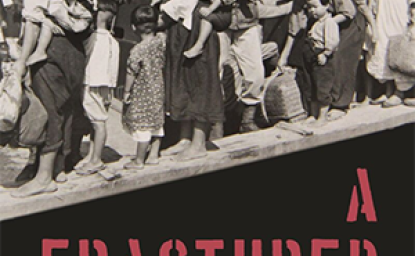#144 Peron and the Nazi War Criminals

By Tomás Eloy Martínez
Summary
In the late 1960s, Nazi war criminal Adolf Eichmann’s kidnapping from a Buenos Aires suburb prompted a period of national reckoning, as Argentines learned that Juan Perón’s government had provided refuge for thousands of German and Croat war criminals. In his 1984 Working Paper, Tomás Eloy Martínez explores how and why the Argentine government officially administered the immigration of Nazis during and immediately after WWII. Despite officially remaining neutral throughout most of the war, U.S. military intelligence reports indicated that Argentina and Germany began making arrangements to transport Nazis to Argentina as early as 1944. That year, reports accused Argentina of selling fake passports to Germans through their embassy in Lisbon and the Spanish government of providing stopover points for planes flying from Germany to Argentina. Air traffic between the two countries continued even after U.S. pressure forced Perón to declare war on the Axis in March 1945.
Perón’s motivation for harboring Nazis is somewhat less clear, but was likely the result of a combination of factors. Perón’s early military training at the Superior War College had instilled in him an appreciation for German military doctrine and his own authoritarian conception of politics made him sympathetic to the Axis. The influx of Germans into Argentina also served a utilitarian purpose. In 1944, Perón introduced an industrialization policy that he envisioned would free Argentina from its history of economic dependence, first on Great Britain, and more recently on the United States. He believed that “useful Germans” would provide crucial technical support for this process. In reality, few scientists were among the Nazis that entered Argentina, but the accomplishments of these few were widely publicized and celebrated by Perón. While German and Croat war criminals may not have made significant contributions to Argentina’s scientific fields, Eloy Martínez concludes that their presence, nonetheless, impacted Argentine history; “No country can open its doors to this class of criminal and sleep soundly. No nation crosses these dark boundaries of history with impunity.”

Latin America Program
The Wilson Center’s prestigious Latin America Program provides non-partisan expertise to a broad community of decision makers in the United States and Latin America on critical policy issues facing the Hemisphere. The Program provides insightful and actionable research for policymakers, private sector leaders, journalists, and public intellectuals in the United States and Latin America. To bridge the gap between scholarship and policy action, it fosters new inquiry, sponsors high-level public and private meetings among multiple stakeholders, and explores policy options to improve outcomes for citizens throughout the Americas. Drawing on the Wilson Center’s strength as the nation’s key non-partisan policy forum, the Program serves as a trusted source of analysis and a vital point of contact between the worlds of scholarship and action. Read more




